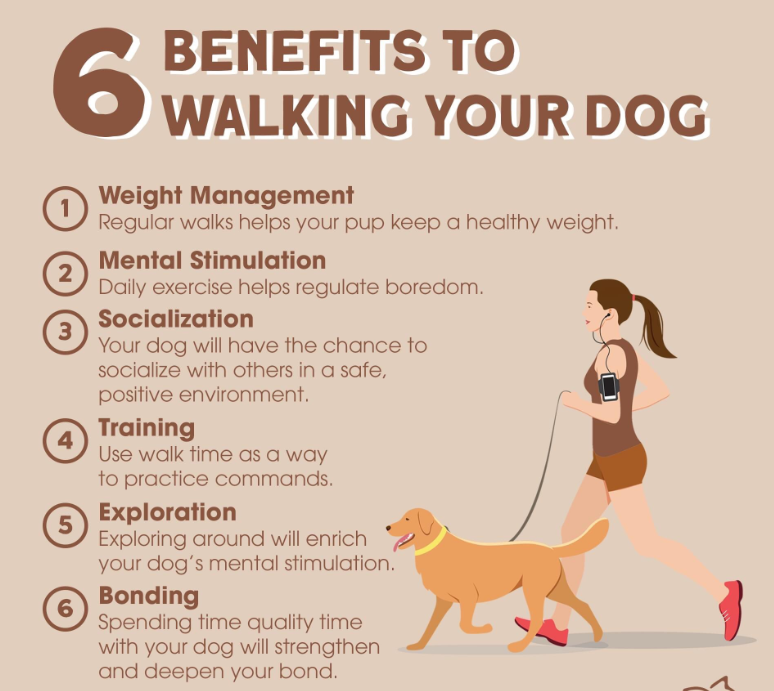In the quest for healthier lifestyles, the role of pets often goes unrecognised. Yet, there is a growing body of evidence that our furry friends can significantly improve our physical wellbeing. The relationship between pets and human health, therefore, is an essential topic that warrants our attention.
Understanding the health benefits of pet ownership is vital for two reasons. First, it can encourage more people to adopt pets, therefore, reducing the number of animals in shelters. Second, it provides an alternative approach to enhancing physical health that is enjoyable and easily accessible.
In this article, we will delve into the key ways pets can bolster our physical health – from boosting cardiovascular health to aiding in exercise routines. We will also discuss the science behind these benefits and explore how different pets contribute differently to physical health.

Cardiovascular Benefits: Reduced Risks of Heart Diseases
Multiple studies have demonstrated a significant link between pet ownership and a reduced risk of heart diseases. According to a research report published in the American Heart Association Journal, owning a pet, particularly a dog, is associated with lower blood pressure and cholesterol levels.
Pets also play a crucial role in impacting heart rate variability (HRV). HRV is a measure of the variation in time between each heartbeat, and it’s directly linked to your body’s physiological resilience and flexibility. Pets, with their calming presence, can help increase HRV, contributing to overall cardiovascular health. A study conducted by the National Institute of Health (NIH) supports this, asserting that pet owners tend to have a better HRV.
While these findings are promising, it’s important to remember that owning a pet is not a substitute for a healthy lifestyle. Regular exercise, a balanced diet, and regular medical check-ups are still paramount for optimal heart health.
For further reading, you may want to explore this resource from Better Health Channel, Victoria State Government.
Physical Activity: Pets as Catalysts for Regular Exercise
It’s commonly known that physical activity is integral to maintaining a healthy lifestyle. However, what you might not know is the significant role that pets can play in promoting consistent exercise. According to a study by the BMC Public Health, pet owners, particularly those with dogs, are more likely to meet their daily physical activity targets compared to those without pets.
Engaging in regular walks and playtimes with pets not only strengthens your bond with them but also contributes to maintaining a healthy weight and improving cardiovascular health. A report by the Australian Institute of Health and Welfare reveals that regular exercise, such as walking a dog, can reduce the risk of heart disease and other health complications.
Thus, owning a pet can act as a catalyst for regular exercise, providing both physical health benefits and enjoyable companionship.

Recommendation: To further illustrate the increase in physical activity levels among pet owners, consider adding a chart or graph here. This visual aid can provide a clear and immediate understanding of the positive impact pets have on their owner’s physical health.
Allergy Prevention: Building a Strong Immune System
Studies have shown that early exposure to pets can significantly aid in building a stronger immune system. Children who grow up in a home with pets are less likely to develop common allergies and asthma. This is believed to be due to their immune system’s exposure to pet allergens and bacteria in the first years of life, which may help build resistance.

The potential role of pets in reducing the risk of allergies and asthma is further supported by the hygiene hypothesis. This theory posits that living in too clean an environment in early childhood can lead to an underdeveloped immune system, causing it to overreact to harmless substances such as pet dander, resulting in allergies. Therefore, having pets at home could introduce a healthy level of microbes, promoting a well-rounded immune response.
While additional research is needed to fully understand these dynamics, the current evidence indicates a positive correlation between pet ownership and a robust immune system, potentially contributing to allergy prevention.
The Healing Power of Pets in Pain Management
Often underestimated, the role of pets in pain management can be significant. Studies suggest that pets can provide comfort and significantly reduce pain levels. This is particularly beneficial for people suffering from chronic pain conditions, including arthritis. Pets, with their unwavering loyalty and companionship, provide emotional support, thereby helping to alleviate pain.
Research demonstrates that the interaction between humans and pets can lead to the release of endorphins – the body’s natural painkillers. This hormone not only induces a sense of pleasure but also has potent analgesic properties.
The Role of Pets in Chronic Pain Conditions
For individuals grappling with chronic pain conditions such as arthritis, pets can be therapeutic. Interaction with pets resulted in lower perceived pain levels among arthritis patients. Moreover, the companionship provided by pets can help combat feelings of isolation often associated with chronic pain conditions.
Pet Therapy: A Proven Approach to Pain Management
Several studies have underscored the effectiveness of pet therapy in pain management. Pet therapy can lower both emotional and physical pain. Such evidence underscores the potential of pet therapy as a part of holistic pain management strategy.
Stress Reduction: Pets as Natural Stress-Busters
Stress is an unavoidable element of modern life, and its impact on our health can be profound. However, research suggests that pets could play a significant role in reducing our stress and anxiety levels. Multiple studies have found that interacting with pets can lead to lower cortisol levels – the hormone responsible for our stress responses. This finding implies that pets may serve as natural stress-busters.

Moreover, pets don’t merely distract us from our worries. A 2015 study showed that pet owners exhibit fewer signs of physiological stress when their pets are present, even in challenging situations. This research indicates that pets have a calming effect on their owners, suggesting that the presence of pets can improve our physical health by reducing stress levels.
The Impact of Pets on Cortisol Levels
Our body’s cortisol levels are directly linked to our stress and anxiety levels. When we’re stressed, our bodies release more cortisol. But when we’re relaxed and happy, our cortisol levels drop. Harvard Medical School reports that having a pet can lower cortisol levels, demonstrating that pets can play a role in our physical health by alleviating stress.
The Calming Effect of Pets
It’s not just about reduced cortisol levels; pets can also induce a sense of calm and contentment. The simple act of stroking a pet can release endorphins – the body’s natural painkillers and mood elevators. So, pets can have a dual effect: reducing stress hormones and increasing happiness hormones. This combination can lead to significant improvements in mental health, which can also have a positive impact on our physical well-being.
Social and Emotional Perks: Beyond Physical Health
While the physical benefits of pet ownership, such as increased activity levels and lower blood pressure, are well-documented, research suggests that our furry companions can also have a profound impact on our social and emotional wellbeing. Bonds formed with pets can enhance social skills, reduce feelings of loneliness and even combat depression. Studies indicate that pets can serve as social catalysts, fostering human-to-human interactions, and thus, expanding social networks.
Furthermore, these emotional benefits can indirectly contribute to physical health. For instance, the companionship pets provide can alleviate stress, a known risk factor for many physical ailments. In fact, the Heart Foundation of Australia notes that pet owners often have lower levels of stress and anxiety, leading to a healthier heart.
Fighting Loneliness and Depression with Pets
The role of pets in combating loneliness and depression is increasingly recognised. The sustained companionship and unconditional love pets provide can significantly mitigate feelings of isolation, while their need for care can instil a sense of purpose. The Beyond Blue organisation cites pet ownership as a valuable strategy in managing mental health.
Conclusion: Embracing the Health Benefits of Pet Ownership
In review, we have underscored a variety of health benefits that come with pet ownership. From the physical benefits such as increased exercise through walks and playtime to the mental health benefits that arise from companionship and decreased loneliness. There’s a profound impact pets have on our overall physical health.
Scientific studies, like those from the Centers for Disease Control and Prevention, demonstrate the remarkable health benefits of pet ownership, including lower blood pressure, cholesterol levels, and feelings of loneliness.
We encourage you to consider these health benefits when thinking about pet ownership. It’s not just about the unconditional love and companionship; owning a pet can truly enhance your physical health in ways you might not have considered.

The positive influence of pets on physical health is unrivalled. It’s time we embrace the health benefits of pet ownership and consider our furry friends as part of our journey towards improved physical health.


